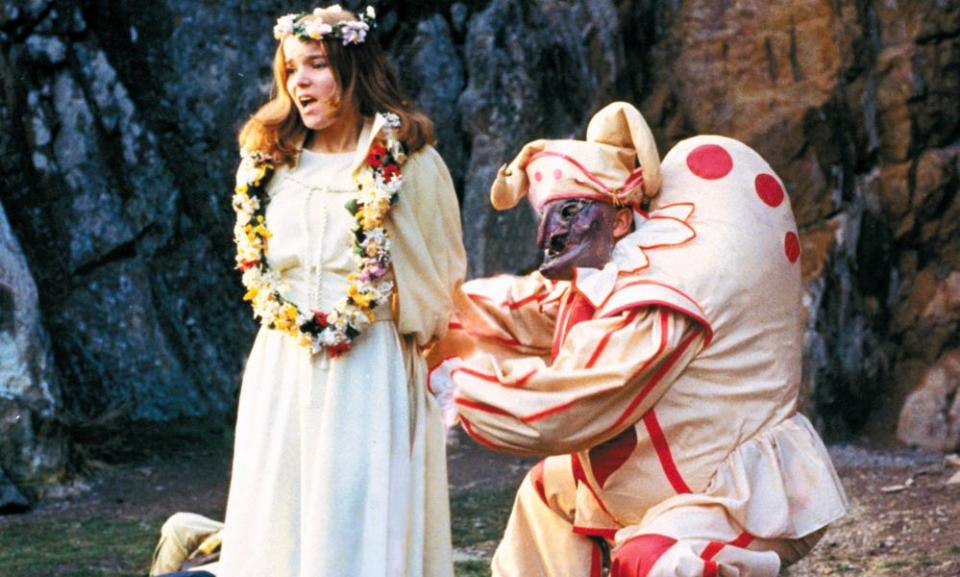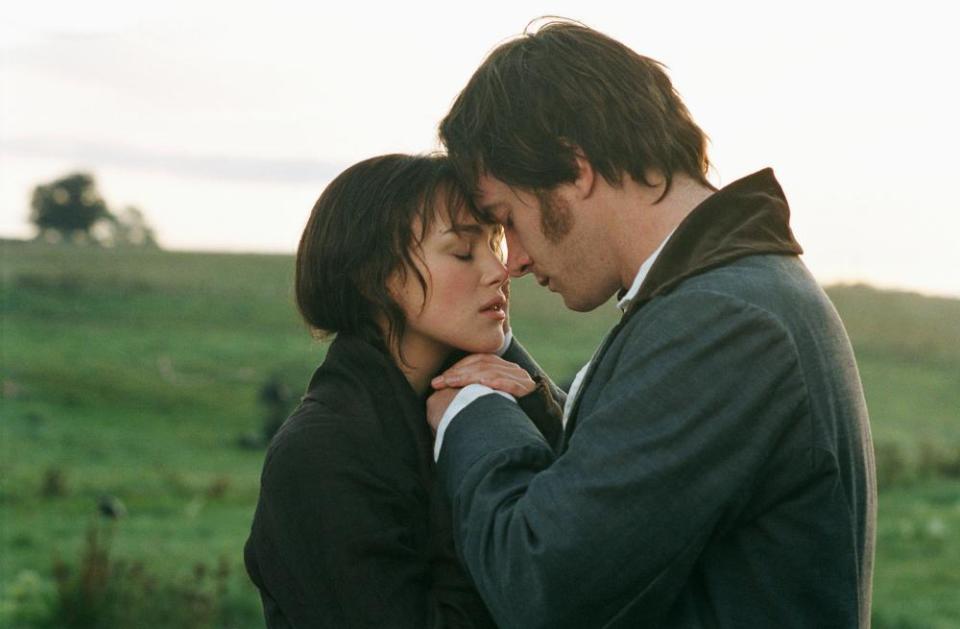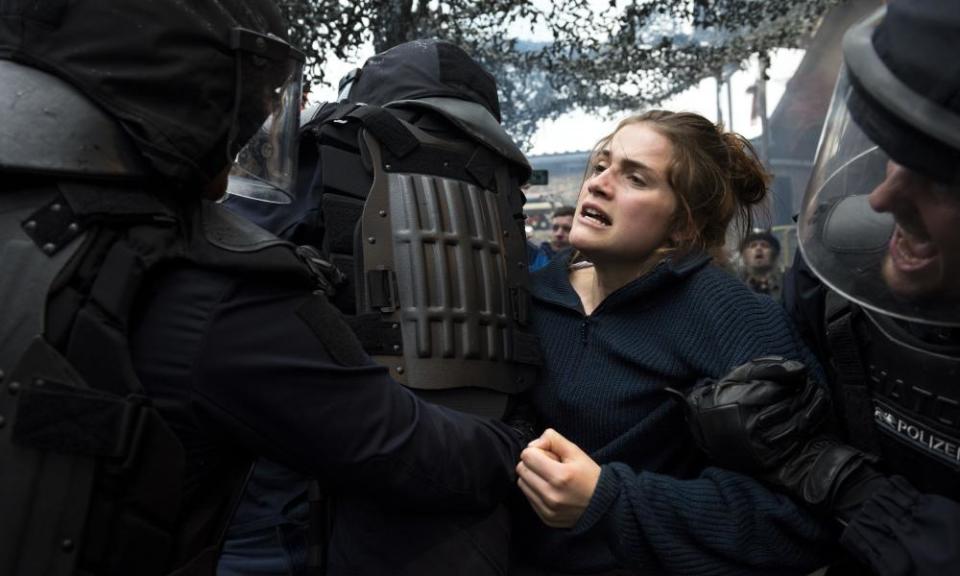Streaming: the best springtime movies

Spring is emphatically here, albeit in somewhat damp form of late; coinciding with the vaccine drive and an incremental lifting of lockdown restrictions has rarely felt like quite such a restorative time of year. Being what they are, the movies can sometimes overstate the romance and renewal of springtime. This year, however, I find myself in the mood for any and all films that give the season its rosy due.
In compiling a streaming playlist of cinema’s best spring stories, my mind went first, of course, to its sweetest, sunniest depictions. Perhaps no film has ever matched 1942’s Bambi (on Disney+, naturally) for the sheer pastel-tastic euphoria of its spring scenes. The accompanying ditty Let’s Sing a Gay Little Spring Song might seem like overkill, but you’ll nonetheless find yourself absently humming it for days after. Is it the most purely ravishing of Disney spectacles? Certainly, its budding animated woodland is iridescent in a way no real-life flower field could ever quite be.
The brief cycle of cherry blossom has rarely been given such delicate thematic purpose
Still, Agnieszka Holland gave it a good go in her still-unmatched 1993 version of The Secret Garden (on Netflix), with its vivid time-lapse shots of blooms unfurling from wintry murk. It’s a less opulent film than last year’s remake, but it couldn’t capture the nature-is-healing theme of Frances Hodgson Burnett’s book any more devotedly.
Staying in a wholesome vein, Spring in Park Lane (on Amazon) was a colossal popular smash in Britain in 1948, though you rarely hear it spoken of today. The springtime setting of its soundstage-constructed Mayfair may be incidental to this petal-weight high society romcom, but it gives the whole enterprise a fleet-footed chirpiness: you can practically sense the blossomy atmosphere through the black-and-white cinematography. A little more soberly evocative of the English springtime is Alberto Cavalcanti’s wartime classic Went the Day Well? (on iTunes), in which a rural village is invaded one idyllic Whitsun weekend by German paratroopers. British pride prevails – released in 1942, this was an artful kind of propaganda film – but not before much violent conflict and loss. The summer ahead glistens with hope.
Of course, for a more perversely grotesque vision of sinister forces bleeding into bucolic, meadowy revelry, you need look no further than The Wicker Man (the 1973 original, of course, on Amazon). No one who has seen it can ever look at folky May Day rituals without wincing, while it makes an active, ominous threat of the medieval song Sumer Is Icumen In. The sensual freedoms of spring can, after all, be a corrupting force. Perhaps the season’s definitive cinematic valentine of the modern era is Harmony Korine’s Spring Breakers (2012; on Google Play), in which a group of female students head to Florida to shake off the winter blues, and overshoot by some distance, as partying turns to hard drugs, bloody crime and sexual grooming. Korine’s spring is one of aggressive neons and blaring dance music, not blush pinks and lilting melodies, but it warms up your chilly bones nonetheless.

A somewhat more conscientious form of springtime youth rebellion is captured in Olivier Assayas’s Something in the Air (2012; on Curzon Home Cinema), a woozy, witty portrait of students variously finding their feet after the demonstrations of May 1968. Assayas presents spring into summer not just as a period of hormonal unrest but, in tandem, intellectual awakening. Yasujirō Ozu’s exquisite Late Spring (1949; on Amazon), meanwhile, sees its young heroine resisting the season’s (and cinema’s) romantic imperatives, clinging to her role as carer to her father even as society pressures her into marriage. The brief cycle of cherry blossom has rarely been given such delicate thematic purpose in Japanese cinema.
But what of the rain? Most springtime films tend to treat grey weather as an imposition on the season’s sprightlier possibilities, which is why Joe Wright’s 2005 version of Pride and Prejudice (on Netflix) – practically an austere Austen vision relative to the hyper-floral decor of last year’s Emma – remains such a bracing marvel. Wright finds the tingling sensual energy in dampness and mud, letting the heavens break as Mr Darcy and Lizzie Bennet finally face their feelings: spring in the movies has rarely been so beautifully ruined.

Also new on streaming and DVD
And Tomorrow the Entire World
(Netflix)
The German director Julia von Heinz competed at last year’s Venice film festival with this gripping, timely thriller following first-year law student Luisa (Mala Emde) as she joins an antifa commune, only to become entangled in an ideological war over passive versus violent resistance. The film maintains a cool head while ratcheting up its tense storytelling.

The Disciple
(Netflix)
Netflix appears to be on a roll when it comes to releasing highlights from last autumn’s festival circuit. Director Chaitanya Tamhane’s beautifully poised drama immerses us in the rarefied world of Indian classical music, examining a thorny relationship between disciple and master, but it’s universally stirring as a study of a life devoted to art in the face of wider indifference.
The Little Things
(Warner Bros)
This grim-faced cop thriller from director John Lee Hancock and star Denzel Washington feels like a throwback to 1990s multiplex fodder, and not in an especially good way. Washington brings his customary gravitas to the stock role of a doleful, disillusioned sheriff on the twisty trail of a serial killer. Jared Leto’s crazy-eyed prime suspect livens things up a bit, but that’s not hard.
A Glitch in the Matrix
(Dogwoof)
Rodney Ascher has made a name for himself bringing compelling psychodrama shivers to the documentary realm, albeit not always with persuasive results. That holds true in his latest, which sees the film-maker plunging into the world of simulation theory – the idea that we may just be players in someone else’s virtual reality. It’s as committed as it is silly, and all the more entertaining for it.

 Yahoo News
Yahoo News 